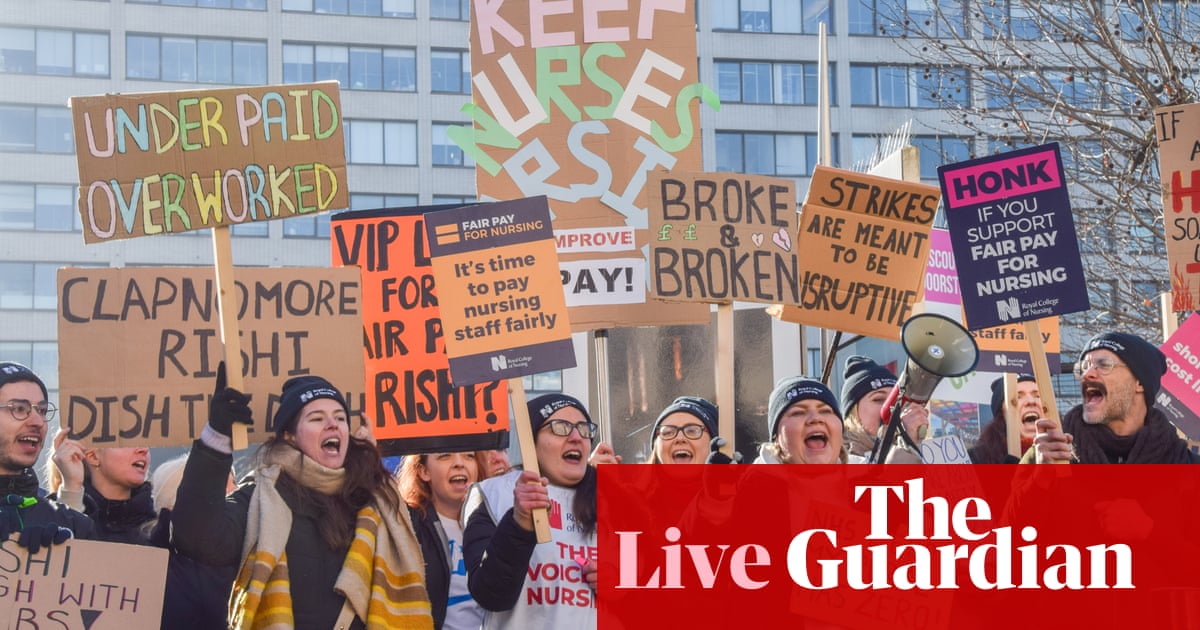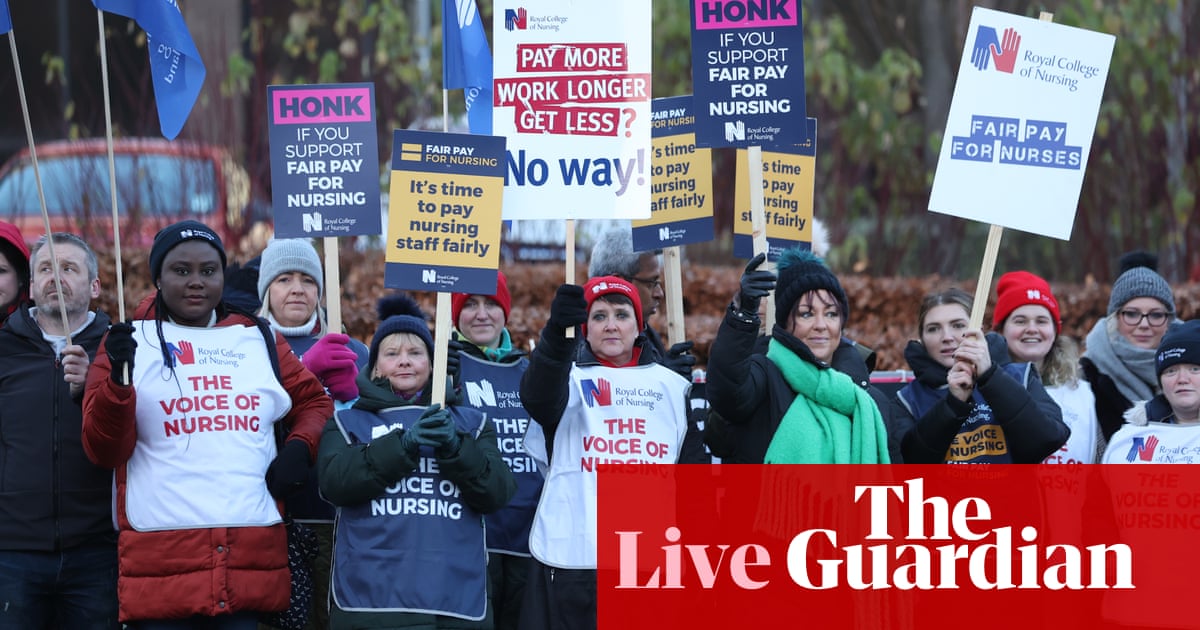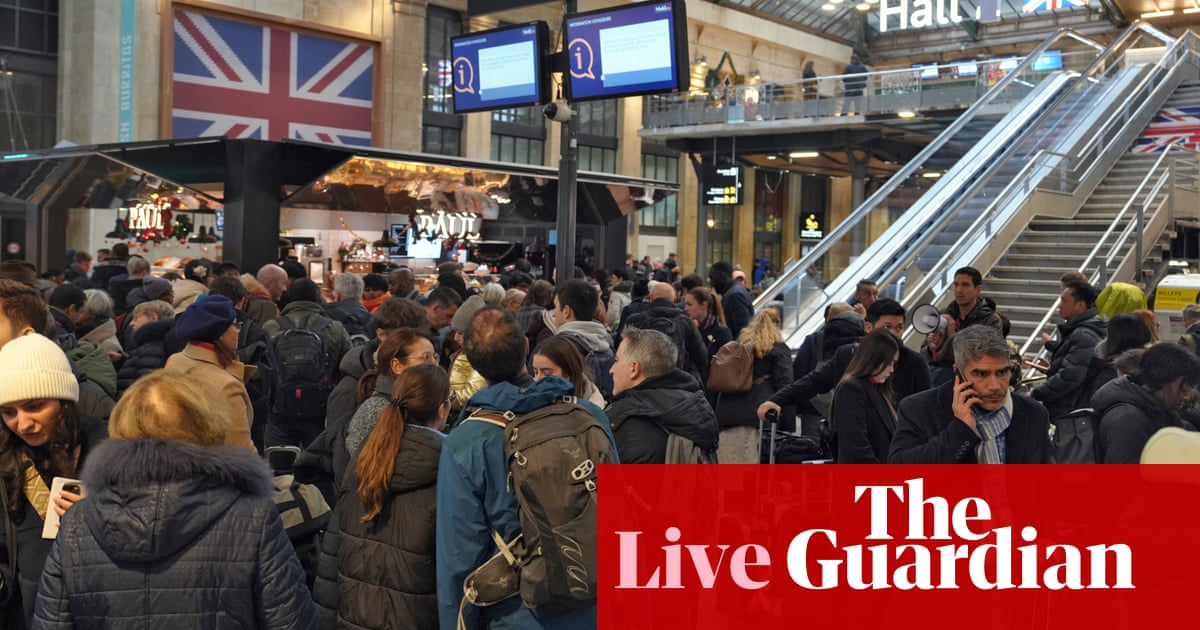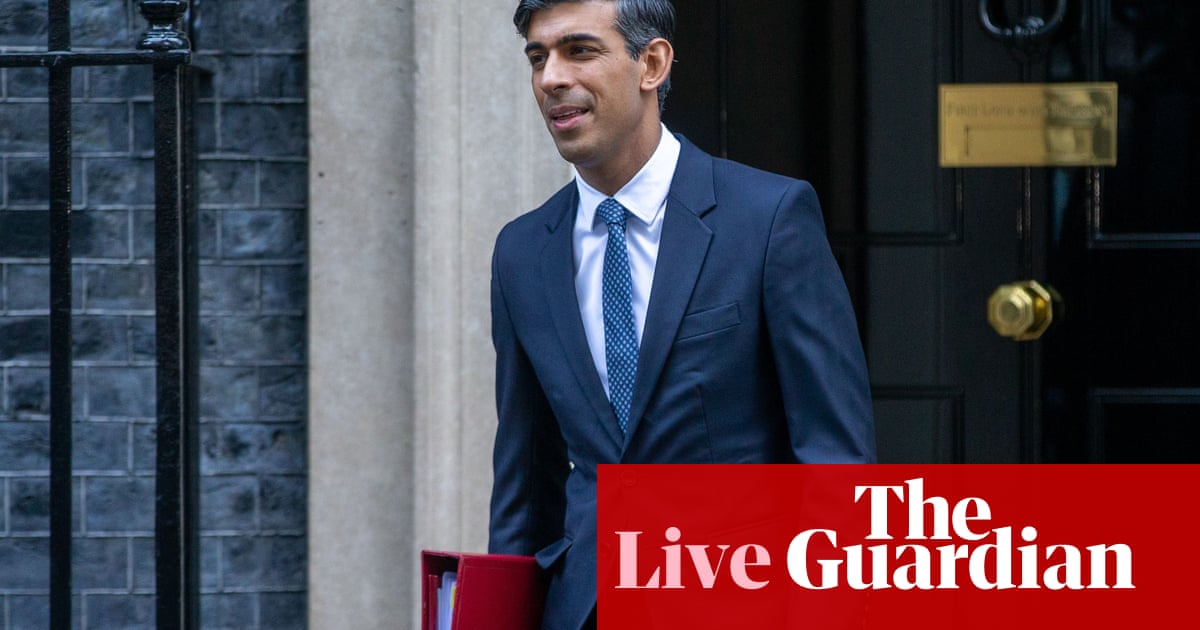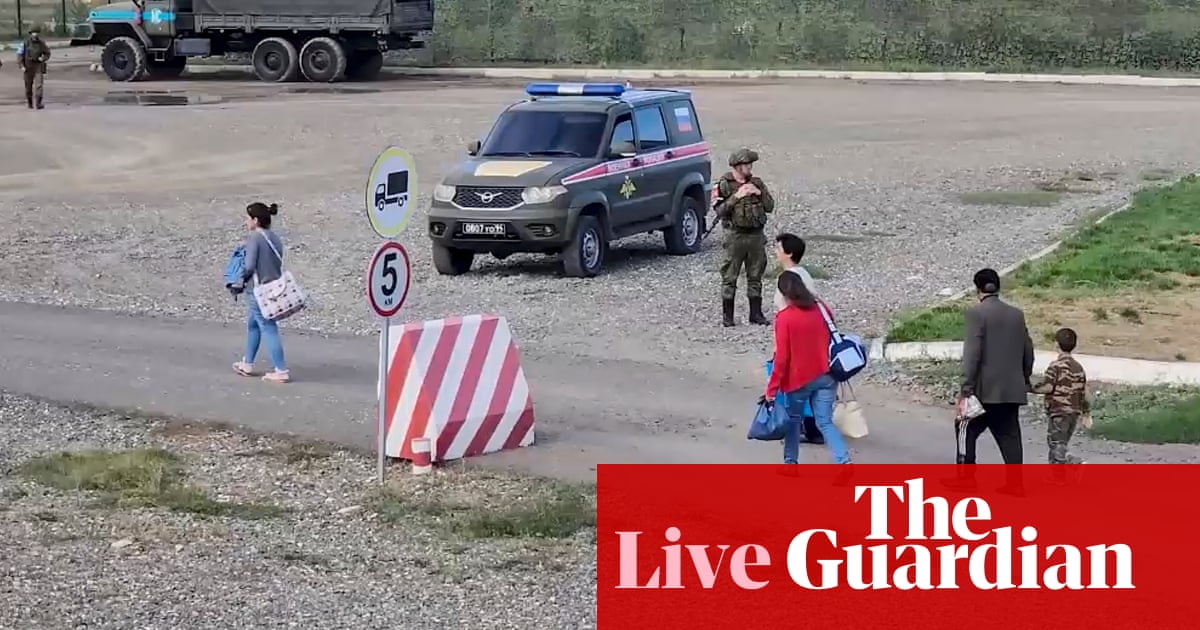
Ambulance strike set to go ahead tomorrow after Steve Barclay concludes talks with unions without discussing pay
Thousands of ambulance workers and paramedics are preparing to strike tomorrow after talks between the government and unions failed to address the issue of pay, PA Media reports. PA says:
Steve Barclay, the health secretary, met union representatives on Tuesday afternoon but discussions around pay were off the table as the government sought reassurances over strike cover.
Thousands of nurses are on strike in England, Wales and Northern Ireland on Tuesday while ambulance staff will walk out in England and Wales on Wednesday.
Unison’s strike is running from noon until midnight on Wednesday while the GMB action runs from midnight tonight to midnight on Wednesday, and Unite’s from midnight tonight to midday on Wednesday.
After the meeting with unions, Barclay tweeted: “I hugely value the work of our NHS staff & it’s disappointing some union members are going ahead with further strike action - my door remains open to further talks. Unions have called for industrial action to cause maximum disruption & inevitably this will have an impact.
Here are Barclay’s tweets.
After the talks, Onay Kasab from Unite, said:
I went in full of hope, unfortunately I’ve come out very, very disappointed, because all the secretary of state wanted to talk about is what’s been done already, the discussions at a local level to make sure that emergencies are covered tomorrow.
The government have got to engage on pay because these strikes will escalate otherwise, that is the reality.
Our members are absolutely determined to win not just the pay battle but to win the battle to save the NHS.
Afternoon summary
Thousands of nurses have been on strike in England, Wales and Northern Ireland, and an ambulance strike in England and Wales is set to go ahead tomorrow after Steve Barclay, the health secretary, concluded talks with trade union without opening new talks on pay. (See 5pm.)
Rishi Sunak has restated his determination to bring inflation under control in evidence to the Commons liaison committee. (See 3.54pm.) Earlier, in an interview with the Daily Mail, he warned that the strikes could go on for months. (See 8.41am.)
Unions and ambulance trusts in most parts of England and Wales have struck deals to ensure “life and limb cover” during a strike on Wednesday, MPs have been told.
Members of the public have been urged to avoid getting drunk or taking part in “risky activities” on Wednesday because strike-hit NHS ambulance services may not be able to treat them.
Train drivers have called a fresh 24-hour strike on 5 January in the long-running dispute over pay and conditions on UK railways.
The Labour former cabinet minister Douglas Alexander is understood to be trying to stand again as an MP at the next election, in the latest sign of Labour “big beasts” returning to frontline politics.
Public account committee chair tells minister not to delay release of PPE Medro papers ordered by MPs
Meg Hillier, the chair of the Commons public accounts committee, has told the government that it would be unacceptable for it to try to postpone the release of papers relating to the award of PPE contracts to PPE Medpro, a firm linked to the Tory peer Michelle Mone.
Two weeks ago the Commons passed a “humble address” motion obliging the government to release papers relating to the contracts to the Commons public accounts committee, which scrutinises public spending.
In a letter to the committeee, sent yesterday, Will Quince, a health minister, said the government might not release the documents to the committee until an investigation into the company by the National Crime Agency is complete. The investigation has been ongoing since May 2021.
In her reply sent today, Hillier said delaying until the NCA inquiry was over would be unacceptable. She said the committee was used to dealing with information submitted on a confidential basis and she told Quince she expected the government to release the information in the new year.
Christina McAnea, the Unison general secretary, told reporters after her meeting with Steve Barclay about tomorrow’s strike that she thinks the health secretary has no leeway to negotiate on pay. She said:
[Barclay] was concerned about the strike, sympathetic to ambulance and other health workers but has no room for manoeuvre apparently, so I don’t know where we go with this.
I’m a negotiator and my view is you go in prepared to make some concessions, you go in prepared to talk about the parameters within which you can make decisions.
But we’re not being given any room for manoeuvre on this and therefore their position is fixed and we have no option but to take strike option and consider strike action in January …
There was nothing about pay. He was very clear about that and I was very clear that without that there’s nothing we can do about the strike.
Ambulance strike set to go ahead tomorrow after Steve Barclay concludes talks with unions without discussing pay
Thousands of ambulance workers and paramedics are preparing to strike tomorrow after talks between the government and unions failed to address the issue of pay, PA Media reports. PA says:
Steve Barclay, the health secretary, met union representatives on Tuesday afternoon but discussions around pay were off the table as the government sought reassurances over strike cover.
Thousands of nurses are on strike in England, Wales and Northern Ireland on Tuesday while ambulance staff will walk out in England and Wales on Wednesday.
Unison’s strike is running from noon until midnight on Wednesday while the GMB action runs from midnight tonight to midnight on Wednesday, and Unite’s from midnight tonight to midday on Wednesday.
After the meeting with unions, Barclay tweeted: “I hugely value the work of our NHS staff & it’s disappointing some union members are going ahead with further strike action - my door remains open to further talks. Unions have called for industrial action to cause maximum disruption & inevitably this will have an impact.
Here are Barclay’s tweets.
After the talks, Onay Kasab from Unite, said:
I went in full of hope, unfortunately I’ve come out very, very disappointed, because all the secretary of state wanted to talk about is what’s been done already, the discussions at a local level to make sure that emergencies are covered tomorrow.
The government have got to engage on pay because these strikes will escalate otherwise, that is the reality.
Our members are absolutely determined to win not just the pay battle but to win the battle to save the NHS.
Q: The original defence review did not mention Taiwan. Will it be mentioned in the integrated review refresh?
Sunak says he is not going to write the IR here.
Sir Bernard Jenkin thanks Sunak for his time. And they’re finished.
Sunak says he is "hopeful" of being able to appoint new ethics adviser soon
Q: When will you appoint a new ethics adviser?
Sunak says he is “hopeful” about being about to appoint someone soon. He says it is important to get the right person for the job.
Sunak says the UK is something of an outlier in the large number of people who stop studing maths after 16. He says he would like to address this.
Q: Do you agree that allowing only some universities to take international students would be a non-starter?
Sunak says that is not something he has spoken about. He says he wants to ensure the brightest and the best can come to the UK. And he says he wants people who come to the UK to contribute.
Robin Walker (Con) goes next.
Q: Will the Northern Ireland institutions be back up and running in time for the 25th anniversary of the Good Friday agreement?
Sunak says he has not put a deadline on it. He says he does not think that would be helpful.
Q: There is no clarity as to what will happen to environmental law under the legislation to review all EU retained law. How long will Defra have to review this law?
Sunak says the government committed to not weakening environmental protections with the bill. It wants to ensure legislation is tailored for this country.
Over 140 bits of retained EU law in the Defra space have been repealed, he says.
He says the dashboard for retained EU law will be updated in the new year.
Sir Bernard Jenkin goes next.
Q: Is it true officials cannot draft replacement legislation until the bill is on the statute book, as I have been told. Can they start now?
Sunak says he will consider this.
Sir Bob Neill (Con) is asking the questions now.
Q: How does the plan to get rid of 3,000 EU laws by the end of next year increase certainty for business?
Sunak says he wants to review this law. But he says there are provisions in the bill that would determine the timetable.
There are areas where the UK will want to take advantage of the new flexibilities, he says.
We should do it quickly.
Q: Quickly or thoroughly?
Quickly and thoroughly, says Sunak.
Q: In 2019 we made no suggestion we would leave the European convention on human rights, did we?
Sunak says most European countries reject most asylum claims for Albania. So he thinks the UK should be able to do that too.
Cash has finally got to the thrust of his question. Will Sunak agree to meet him to discuss this? Does he agree executives must be liable?
Cash ends by asking for a “clear understanding” that Sunak agrees with him.
Sunak says the online safety bill is world-leading. He says senior managers will face criminal sanctions under the bill. The home secretary will engage with colleagues, he says.
Q: But will you meet with us? The criminal sanctions in the bill are too indirect.
Sunak says the culture secretary will pick this up.
Sir Bernard Jenkin jokes about how a meeting with Bill Cash would be “something to look forward to” in the new year.
Sunak swerves that one again, and says it will be one for the culture secretary.
Sir Bill Cash (Con) says the statute book is still full of EU law, even though we have left. This applies to the online safety bill too, he says.
He is making a short speech rather than asking a question.
Not even a short speech …
Q: Will the new asylum law contain provisions allowing the UK to derogate from the European convention on human rights?
Sunak says he will not speculate on that.
Q: A consent motion from the Scottish parliament would be required for you to repeal the Human Rights Act. Will you respect the vote of the Scottish parliament if it blocks repeal of the Human Rights Act?
Sunak says he will work with the Scottish parliament and work constructively.
Q: But if the Scottish parliament blocks repeal, will you respect that?
Sunak says you would expect the two parliaments not to agree on everything. But he wants to work constructively with Edinburgh, he says.
Sunak refuses to say whether his asylum plans might require UK to leave European convention on human rights
Joanna Cherry (SNP) says Suella Braverman has said before she wants the UK to leave the European convention on human rights. Is that your position?
Sunak says he will legislate to allow the UK to remove asylum seekers.
Q: Will that require the UK to leave the convention?
Sunak says he does not want to speculate on that.
Q: Dominic Raab said leaving the convention was not off the table.
Sunak says he is confident he can deliver on his plans.
Here is my colleague Peter Walker’s take on these answers.
The committee is now moving on to the final section, on the state of the union. (See 2.56pm.)
Pete Wishart (SNP) says there have now been six polls in a row showing a majority for an independence vote. How will you respond?
Sunak says he wants to ensure the government keeps delivering for Scotland.
Q: Do you realise how hollow that sounds? We think Scotland should decide its future. You are not going to tell me, are you, you have no plans for Scotland’s constitutional future?
Sunak says the government will continue to deliver on the Smith commission plans. Good progress is being made on that.
Q: Do we have to wait until you decide the time is right for another referendum?
Sunak says he wants to focus on things that will make a difference to people’s lives.
Q: The more you delay, the more support for independence will go up? At some point you will have to address this.
Sunak says he wants to focus on things that make a difference to the lives of people in Scotland.
Q: You were given a fixed-penalty notice during Partygate. Do you think we have been unnecessarily hard on your predecessor Boris Johnson.
Sunak says he has not got anything further to say on Partygate.
But he disputes Wishart’s claim he has nothing to offer the people of Scotland. He says he made a point of speaking to the first minister on his first day in office.
Sunak offers "personal message" to NHS workers going on strike
Sir Bernard Jenkin asks about the NHS strikes.
Sunak says the pay review bodies took into account the likely impact of inflation.
He says he wants the NHS to focus on cutting the backlogs.
He says the government has a clear commitment to funding the NHS well.
Q: What would be your personal message to NHS workers who are going on strike?
Sunak says he has always been grateful to NHS workers for what they do. He says it is important for government to get a grip on inflation.
UPDATE: Sunak said:
I’ve acknowledged it is difficult, it’s difficult for everybody, because inflation is where it is. And the best way to help them and help everyone else in the country is for us to get a grip and reduce inflation as quickly as possible.
And we need to make sure that the decisions that we make can bring about that outcome. Because if we get it wrong and we’re still dealing with high inflation in a year’s time, that’s not going to help anybody.
I don’t want to see that, I want to see things get back to normal, and that’s why having an independent pay process is an important part of us making those decisions and getting them correct.
McKinnell says the number of children living in poverty is going up, not down. She says 75% of children growing up in poverty grow up in a house where someone is working.
Sunak says there are over one million fewer people in absolute poverty than there were in 2010. He says that includes 200,000 fewer children.
(Absolute poverty is a poverty as measured by reference to household income figure from 2010. Unlike relative poverty, the benchmark does not go up every year as inflation rises. Over time, the number of people living in absolute poverty almost always falls.)





